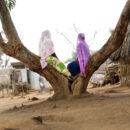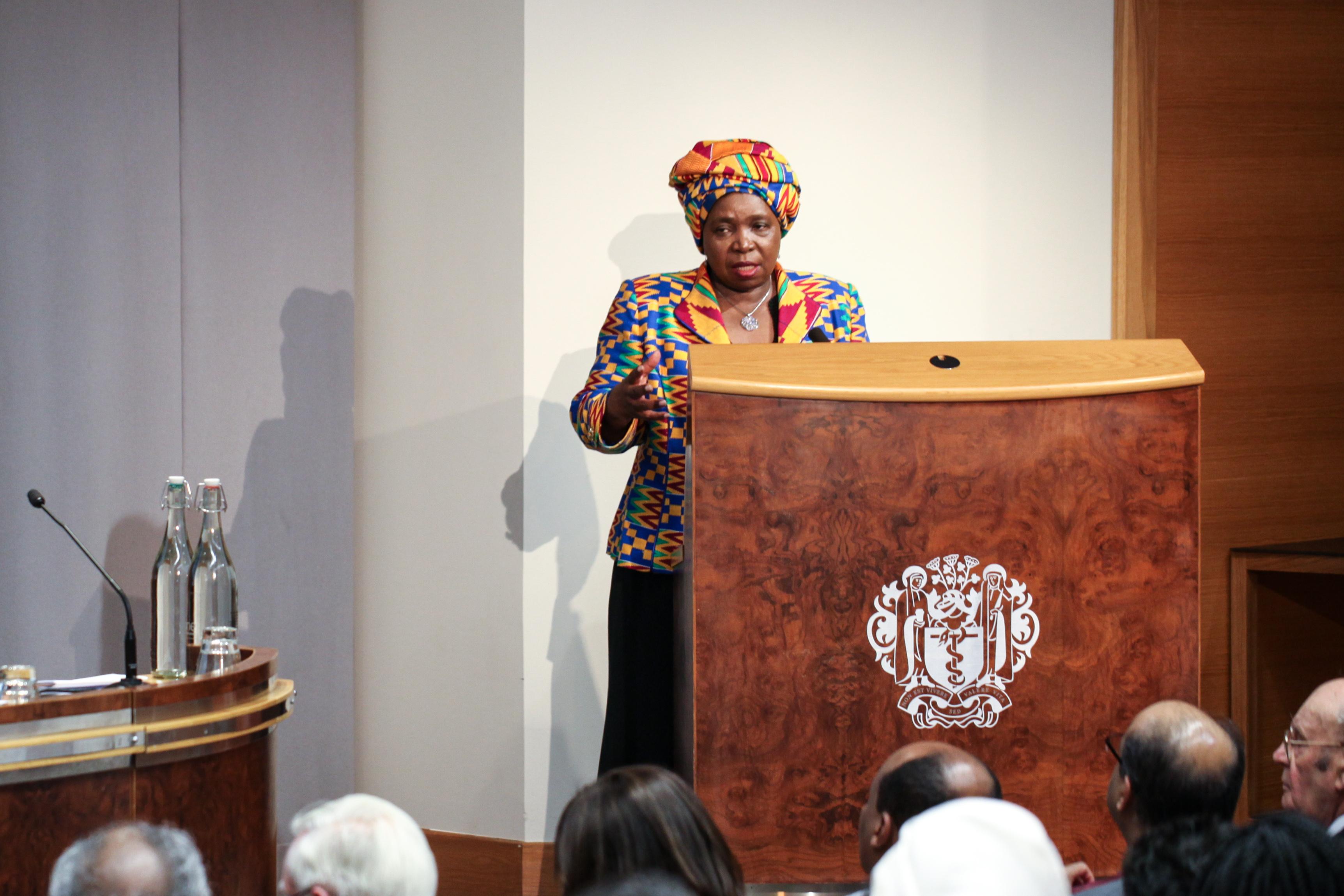Africa Insiders: The COVID-19 recession is going to hurt


Credit: Brad Ruggles
Read all our COVID-19 coverage
African countries have so far seen relatively fewer COVID-19 cases than hotspots in western Europe, the US and East Asia. But with the likes of South Africa, Egypt, Algeria, Burkina Faso and others reporting exponential growth in confirmed cases, it is only a question of time before this public health crisis arrives across the continent in full force.
Coronavirus will not just bring a health crisis, however, but an economic one. Countries further along the pandemic curve are already experiencing immense economic fallout. This begs the question of how COVID-19 will impact Africa’s economies and how African governments could prepare and react.
An inevitable global recession
Taking China’s experience to heart, governments across Asia, Europe and North America are mostly taking a staggered approach to COVID-19, with each step having different consequences on local economies.
First, individual cases are identified, quarantined and contact-traced to try to prevent the virus’ spread. Second, once the virus can no longer be contained, severe restrictions on movement and economic activity are implemented. Finally, once the outbreak has been brought back under control, authorities can gradually lift these restrictions and transition back to tracing individual infections.
China is furthest along this spectrum. While it went into lockdown for several weeks, 90% of large companies are now operating again and restrictions on movement have been lifted in many areas. But economic activity is unlikely to return to pre-pandemic levels any time soon. Other large economies in Europe and the Americas are only now enacting the harshest containment measures, severely depressing demand and investment. Most economists assume a global recession is inevitable. The only question is how long it will last and how severe it will be.
Will African countries shutdown their economies?
To judge the likely consequences for African countries, some differences to other continents should be considered. First, many governments on the continent are unlikely to have the capacity or interest to implement harsh domestic restrictions on daily life. They will find it particularly difficult to restrict the activities of those in rural areas, working subsistence agriculture or the large informal economy.
Moreover, while governments may be able to enforce lockdowns in urban areas, the impact would be immediate and severe. With little in the way of a social safety net and few public resources to help ease the fallout, national economies would break down instantly. Germany has announced that it will spend at least €150 billion ($163 billion) to mitigate the economic consequences of a nationwide shutdown. But while countries like Germany can borrow money at virtually no cost, African governments would expose themselves to a debt crisis if they were to spend on a similar scale.
Most African states will likely judge this to be not worth the cost. They might have a point, given that few countries have a universally accessible public health system that could be overwhelmed in the first place. Some governments might also hope that early reports of warmer climates reducing transmission of the virus are accurate and that their overwhelmingly young population is less susceptible to the illness anyway.
This is, of course, an incredibly risky wager. The virus seems to spread equally well in African countries and those with compromised immune systems are particularly vulnerable. Millions in Africa suffer from HIV/AIDS or tuberculosis and lived in cramped unsanitary settlements.
Lessons from 2008
Only time will tell if this domestic bet pays off. But either way, it won’t let African countries escape the global fallout of the pandemic.
The 2008 global financial crisis provides some sense of the potential turbulence heading Africa’s way. Similarly to COVID-19, this crisis originated elsewhere. But due to reduced demand, countries reliant their of oil and other natural resources saw their exports drastically reduced. Angola went from 13.2% GDP growth in 2008 to -0.6% in 2009. Nigeria went from 6% to 3%. GDP growth in countries south of the Sahara more than halved from 2008 to to just 2.5% in 2009. For many countries, this level of growth is not sufficient to compensate for high birth rates.
The 2008 financial crisis also had other adverse economic effects: Remittances stagnated in 2009 having risen each year since 2003. Tourists numbers dropped from 35 to 33 million and took years to return to prior growth numbers. And the amount of development assistance effectively stagnated.
Some other effects were more qualitative. For example, the financial insecurity associated with the 2008 crash arguably contributed to the rise of far-right political movements that have worked tirelessly to restrict the migration of Africans to Europe and the US.
It is not hard to see the COVID-19 pandemic leading to even worse outcomes. Tourism and business trips have mostly stopped globally due to travel restrictions, which will take months, if not years, to be fully lifted. With all major economies facing a recession, demand for natural resources will plummet. Copper and oil are already trading at their lowest prices since 2016.
Remittances are likely already impacted, with those in the diaspora subject to national restrictions in host countries. And due to China’s economic restrictions, traders across Africa are struggling to get access to the wide range of imported goods that comprise a large share of domestic commerce.
A crisis, an opportunity
But there could also be a silver lining. If nothing else, governments are currently proving the power of state interventions. Politicians everywhere are discovering the resources at their disposal on a scale not experienced since the Second World War.
It is not hard to see how this could work to Africa’s advantage. If the same level of political energy were to be directed at other crises, like climate change, global poverty or economic exploitation, the continent would stand to benefit enormously. More important still, the newfound admiration for efficient and effective governments is a vindication for those African countries that have advocated for an approach to economic development centred on strong institutions and a greater common good, instead of free and unrestrained markets.
Mitigating the tremendous economic hardship and personal suffering from COVID-19 is undoubtedly the priority, but policymakers should also start thinking about how they could use the fallout to shape a more just, sustainable, and prosperous vision of the future. After all, the greater the crisis, the less we should let it go to waste.
- COVID-19 Global Cases Dashboard (John Hopkins)
- Daily COVID-19 situation reports (WHO)
- African Countries Respond Quickly To Spread Of COVID-19 (NPR)
- COVID-19: WHO warns Africa to prepare for worst (Al Jazeera)
- South Africa to impose 21-day lockdown as coronavirus cases jump (Reuters)
- COVID-19: the cure could be worse than the disease for South Africa (The Conversation)
- Avoiding the nightmare (Africa Confidential)
- In Africa, social distancing is a privilege few can afford (Al Jazeera)
- Coronavirus: How will Covid-19 affect African economies? (BBC)
- Tens of thousands of African jobs at risk as Europe dumps flowers during the Coronavirus crisis (Martin Plaut)
- The impact of trade-disrupting COVID-19 on South African business (PwC)
- The impact of COVID-19 on the Energy, Mining and Infrastructure sectors in Africa (African Mining Market)
- South Africa’s coronavirus crisis: HIV, TB and informal housing (Martin Plaut)
- COVID-19: Ethiopia premier seeks debt relief for Africa (Anadolou)
- Africa Needs $100 Billion Stimulus to Combat Virus (Bloomberg)
- The effects of the financial crisis on Sub-Saharan Africa (Review of Development Finance)
- Africa 10 years after the global financial crisis: what we’ve learned (ODI)
Pay what you want for the FULL Africa Insiders Newsletter!
We send out multiple stories per week, including in-depth analysis of current elections and public health emergencies.
The Africa Insiders' Newsletter is a collaboration between AfricanArguments.org and @PeterDoerrie, with contributions from @_andrew_green and assistance from Stella Nantongo. Part of the subscription revenue is funding in-depth and freely accessible reporting and analysis on African Arguments.







The effect of COVID 19 on the major economies has been enormous. With forced lockdowns and low consumer confidence, the businesses are facing a huge uphill task to remain operational while meeting their fixed costs.
China has has become one of the main trading partners of African countries. The COVID-19 healh crisis is likely to affect this relationship. However, China’s OBOR is a project geared towards improving China’s food security position. Africa’s agriculture presents a gateway opportunity for China to export to other countries. The approach of China in African agriculture has been an eclectic one, rooted in technical cooperation aimed at achieving development goals but branching out into commercially motivated projects and market-based trading arrangements.
Bashar H. Malkawi
cialis for daily use